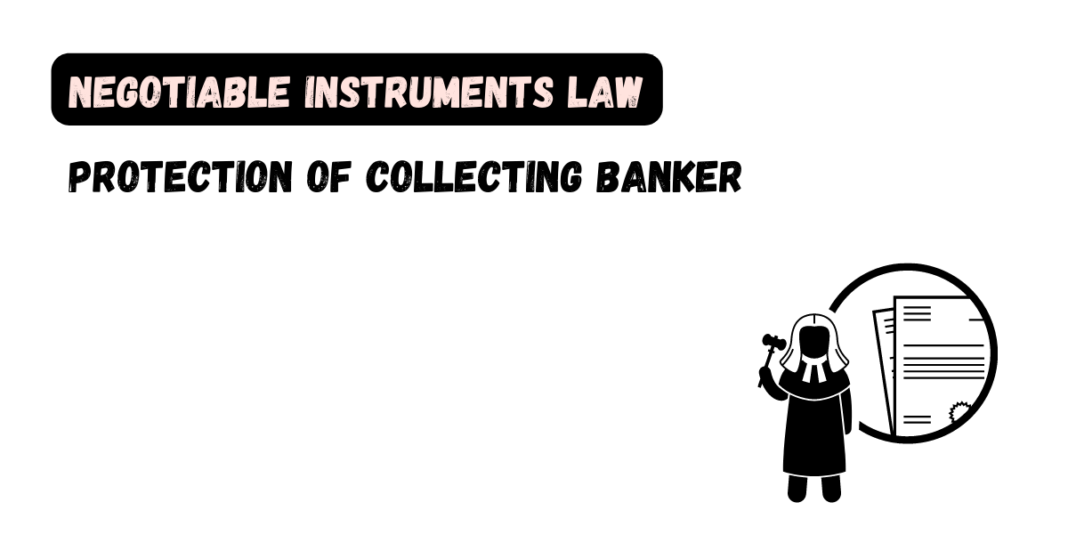The protection of a collecting banker refers to the legal safeguards provided to a bank that collects payment on behalf of its customer who presents a negotiable instrument, such as a cheque, for payment. These protections aim to ensure that the collecting banker is not held liable for any defects, irregularities, or disputes related to the instrument.
Some Aspects of the Protection of a Collecting Banker
Holder in Due Course
If the collecting banker receives payment on a negotiable instrument in good faith and without notice of any defects or irregularities, it may become a “holder in due course.” A holder in due course enjoys certain legal advantages and protection, including the right to enforce payment against the parties liable on the instrument.
Protection from Title Defects
A collecting banker is generally protected against title defects in the instrument. This means that even if the customer who presented the instrument had a defective title or lacked the authority to transfer the instrument, the collecting banker may still obtain valid title to the instrument and enforce payment.
Protection from Material Alterations
If the instrument has been materially altered without the knowledge or consent of the collecting banker, it may still be protected. The collecting banker can generally enforce payment according to the original terms of the instrument and is not held responsible for any alterations made after it was entrusted to the bank.
Protection in Good Faith
A collecting banker that acts in good faith and exercises ordinary care in collecting the instrument is generally protected. The bank is not held liable for any discrepancies, forgery, or irregularities in the instrument that were not apparent or could not reasonably be detected by the bank during the collection process.
Proper Endorsement
The collecting banker is protected when the instrument is properly endorsed. The bank must ensure that the necessary endorsements are present on the instrument and that they comply with the requirements of the law. This helps establish the bank’s rights as a valid holder of the instrument.





